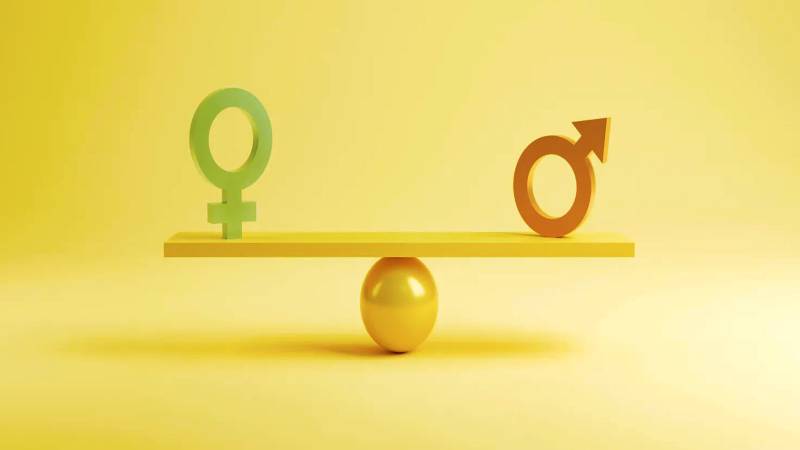
Inequality is a harsh reality that impacts countless lives in profound ways. From economic gaps to social injustices, the divide between the privileged and the marginalized grows wider, affecting those who are already struggling to find their place in the world.
Justice and inequality are two sides of the same coin. Justice involves fairness, equal opportunities, and the right to live with dignity. Inequality, on the other hand, is defined as the absence of these principles. It manifests in various forms, including economic disparity, unequal access to education, healthcare, and social services, and discrimination based on race, gender, and other identities.
Inequality is a complex, multifaceted problem, not just an economic issue. It stems from systemic imbalances in power and resource distribution, perpetuated by policies and practices that favor the affluent while marginalizing the vulnerable.
Inequality hits hardest on the most vulnerable members of society. In Pakistan, the impact is particularly severe, affecting women, children, minorities, and many other vulnerable groups—children denied their right to education, women fighting against gender biases, and minorities enduring discrimination.
Pakistan's position on the Global Gender Gap Index 2022 was 145 out of 146, highlighting a critical gap in gender equality. This significant disparity reflects systemic barriers that women face in education, employment, and political participation. According to the IMF, closing the gender gap could boost Pakistan's GDP by up to 30%. This potential economic gain underscores the urgent need for gender equity reforms.
Individuals with disabilities face significant barriers to accessing education, employment, and social services. Societal attitudes and a lack of infrastructure often lead to exclusion and economic dependence.
Older adults, particularly those without sufficient social support or pensions, face economic hardship and limited access to healthcare. Age-related discrimination can further limit their opportunities for employment and social inclusion.
Transgender people often encounter discrimination and violence, affecting their mental health, economic opportunities, and access to services. These types of social barriers can prevent them from fully participating in society.
Religious and ethnic minorities face significant challenges, including widespread discrimination and unequal access to resources. They often encounter barriers to securing quality education, employment opportunities, and fair treatment. Discriminatory practices limit their ability to fully participate in societal and economic activities, perpetuating cycles of disadvantage.
Residents in rural areas often face isolation from essential services and economic opportunities, with limited access to healthcare, education, and jobs exacerbating poverty. Consequently, many choose to move to urban areas in search of better prospects, contributing to rapid urbanization. This shift puts immense pressure on urban resources and infrastructure, leading to environmental degradation and increased strain on city systems.
The root causes of inequality are varied and interlinked, creating a cycle that is difficult to break. Economic disparities play a significant role, with wealth concentrated in the hands of a few while a significant portion of the population struggles with poverty. This disparity is often driven by unequal access to jobs, fair wages, and financial resources. Coupled with this is the issue of educational inequities, where access to quality education remains a significant barrier. Children from low-income families often attend underfunded schools, lack essential learning resources, and have fewer opportunities for higher education, perpetuating the cycle of poverty.
Healthcare access further compounds these issues, as health disparities are stark, with marginalized communities facing limited access to healthcare services. Unfortunately, trans communities even struggle to gain entry to the ward in order to save their loved ones, a privilege that our system denies them. This is an incredibly harsh and lowest possible level of inequality. Social discrimination based on race, gender, religion, and other identities exacerbates these problems, creating an environment where certain groups are systematically disadvantaged. Additionally, the unequal distribution of resources such as clean water, food, and housing leads to miserable living conditions, further entrenching poverty and deprivation.
We need a variety of strategies to overcome the stigma of inequality, but the real challenge lies in their effective implementation. A comprehensive approach involving all sectors of society is essential to translating these strategies into tangible outcomes. Policy reform is crucial for promoting equity, including progressive taxation, increased minimum wages, and social safety nets to support the most vulnerable. Ensuring that every child has access to quality education is vital, as around 2 crore (20 million) children in Pakistan are currently out of school. Addressing this issue involves investing in schools, providing scholarships and financial aid, and creating inclusive educational environments that cater to diverse needs.
Expanding access to healthcare services is also essential for reducing health disparities. This includes not only providing affordable healthcare but also addressing social determinants of health like housing, nutrition, and environmental factors such as clean air and water, sanitation, and safe living environments. Targeted initiatives, like community program development, legal protections, and social inclusion promotion, must empower marginalized communities. For example, combating the misuse of blasphemy laws, which disproportionately target religious minorities, is crucial. These laws often lead to persecution and discrimination, undermining efforts to create an equitable society. Addressing inequalities is integral to sustainable development. By reducing disparities and promoting equitable resource use, we can challenge and ultimately eliminate the stigmas associated with inequality, fostering a more inclusive society where all members have the opportunity to thrive.
Addressing inequality requires collective effort and unwavering commitment. It is not enough to acknowledge the problem; we must actively work towards solutions that ensure justice and fairness for all. The government plays a crucial role in this process by enacting and enforcing policies that promote equity, investing in social programs, and setting a framework for sustainable development.
Reflecting on the discussions and insights shared, we see that reducing inequality is not just a moral imperative but a necessary step towards a more just and equitable society. The stark disparities and the potential for significant economic and social improvements underscore the need for urgent action. By embracing comprehensive strategies, fostering collaboration across sectors, and empowering marginalized communities, we can move closer to a world where everyone has the opportunity to thrive.

